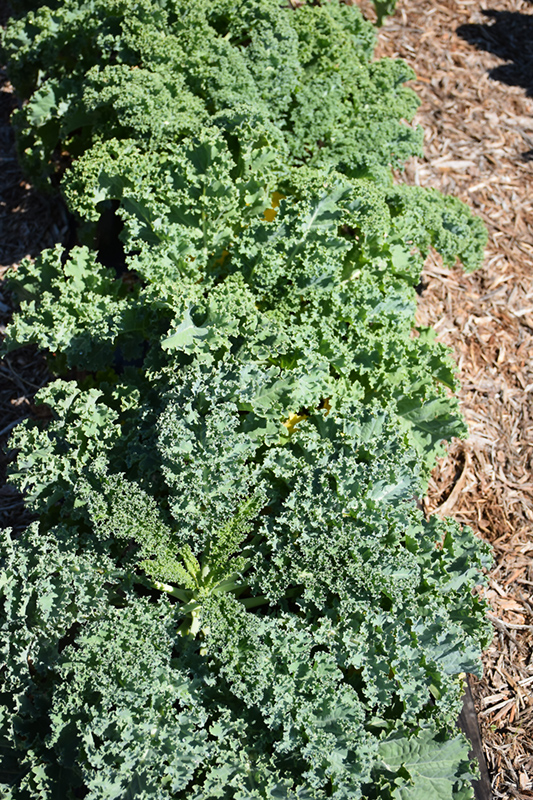Blue Curled Scotch Kale Brassica oleracea var. sabellica 'Blue Curled Scotch' Height: 16 inches Spacing: 12 inches
Sunlight:
Hardiness Zone: (annual) Description: A stunning variety for both ornamental and edible use; cool weather performer ideal for gardens and containers; tender blue-green leaves with a pleasant sweet taste; young leaves are great for salads, while mature leaves are better for stews and soups Edible Qualities Blue Curled Scotch Kale is an annual vegetable plant that is typically grown for its edible qualities. The large crinkled oval green leaves with hints of bluish-green can be harvested at any time in the season. The leaves have a pleasant taste and a crunchy texture. The leaves are most often used in the following ways: Planting & Growing Blue Curled Scotch Kale will grow to be about 16 inches tall at maturity, with a spread of 32 inches. When planted in rows, individual plants should be spaced approximately 12 inches apart. This fast-growing vegetable plant is an annual, which means that it will grow for one season in your garden and then die after producing a crop. This plant is typically grown in a designated vegetable garden. It should only be grown in full sunlight. It does best in average to evenly moist conditions, but will not tolerate standing water. It is not particular as to soil pH, but grows best in rich soils. It is somewhat tolerant of urban pollution. Consider applying a thick mulch around the root zone over the growing season to conserve soil moisture. This is a selected variety of a species not originally from North America, and it is considered by many to be an heirloom variety. Blue Curled Scotch Kale is a good choice for the vegetable garden, but it is also well-suited for use in outdoor pots and containers. It is often used as a 'filler' in the 'spiller-thriller-filler' container combination, providing a canvas of foliage against which the thriller plants stand out. Note that when growing plants in outdoor containers and baskets, they may require more frequent waterings than they would in the yard or garden.
![]()
![]()
![]()
![]()
![]()
![]()
![]()
![]()
![]()
Characteristics
Applications
Features & Attributes

